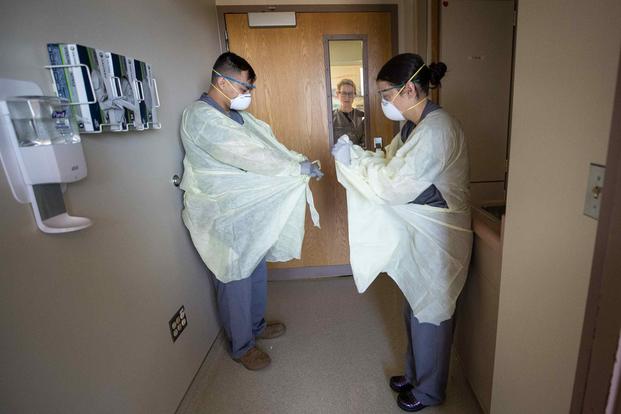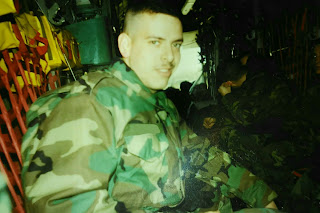The Army Asked Retirees in Medical Fields to Come Back. The Response Was Overwhelming
By Hope Hodge Seck
Days ago, the U.S. Army sent out an unusual plea to its retired officers and enlisted soldiers: If you served in one of eight high-demand medical specialties, it said, you may be able to "re-join the team" in order to help the service fight the coronavirus pandemic.
"We need to hear from you STAT!" the message from the Army's head of personnel, Lt. Gen. Thomas Seamands, read.
The Army's retirees took that seriously.
"We reached out to more than 800,000 retired Soldiers to gauge their willingness to assist with the COVID-19 pandemic response," an Army spokesperson told Military.com Friday. To date, more than 14,000 retirees "representing various specialties" have contacted the service for more information, he said.
That comes out to a remarkable response rate of 1.75% -- and that figure may grow considerably. Between Thursday evening and Friday, the pool of respondents increased by 5,000.
Seamands' message said the Army was looking for retirees from the following specialties: critical care officer; anesthesiologist; nurse anesthetist; critical care nurse; nurse practitioner; ER nurse; respiratory specialist; and medic.
Army officials have declined to answer questions about how many medical positions they're looking to fill or what the timeline will be to get volunteers vetted, trained and situated.
"We've had some positive responses," Gen. James McConville, the chief of staff of the Army, said Thursday in response to a Military.com question. "What we're looking for is medical expertise."
Lt. Gen. Raymond Scott Dingle, the surgeon general of the Army, added that volunteers will be assessed for current medical certifications and credentials.
"Then once we do that, we will plug them into all of our medical treatment facilities as required in support of the mission," he said.
The Army does not often issue voluntary retiree recall requests, but there is a process established for retirees returning to active duty. According to the Army Human Resource Center, the average retiree recall tour is 365 days long, although they can stretch 730 days or more. Ultimately the length of recall is determined and agreed upon between the command and the soldier.
While retirees may be eligible for an increase in retirement pay if the recall tour lasts two years or more, they cannot be promoted in recall status.
Dingle said it takes about 330 soldiers to man each military field hospital, including the headquarters element and all staffing.
The Army has already issued deployment orders for the first three field hospitals, bound for New York City and Seattle -- two of the regions hardest-hit by the coronavirus pandemic.
"Those soldiers that are assigned to medical treatment facilities, what we call military medically assigned personnel, their primary mission is to support the force," Dingle said. "When they are called upon to deploy -- in this case here, to support the whole-of-government, our nation, those medical providers, we look at cross-leveling within the medical command. And then the volunteers that you're talking about is where we also will leverage, in addition to the Army reserves, to fill those holes from the medical treatment facilities so that we can maintain the readiness of our soldiers as well as to the beneficiary population."
Original Here
Thanks for stopping by!
Want to get notifications for Articles and Updates at Tex's Place?
⭐⭐⭐⭐⭐
Want to get notifications for Articles and Updates at Tex's Place?
⭐⭐⭐⭐⭐
CLICK/TAP HERE for options⭐⭐⭐⭐⭐


